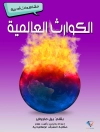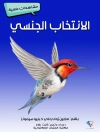Western social scientists can improve their understanding of post-Soviet Russia by studying the new discipline of Russian International Relations (IR). This collection introduces recent developments in Russian international studies. It identifies key trends in Russian IR knowledge that are reflective of the transitional nature of Russia’s post-Soviet change. The volume also demonstrates that Russia remains open to different theoretical and ideological traditions. It invites scholars to move away from excessively West-centered IR scholarship by exploring indigenous Russian perceptions and inviting dialogue across the globe.Andrei Tsygankov and Pavel Tsygankov on Russia’s identity and IR theory; Alexander Sergunin on post-communist international discussions; Tatyana Shakleyina and Alexei Bogaturov on the Russian Realist school of international relations; Pavel Tsygankov and Andrei Tsygankov on the discourse of Russian Liberal IR theorists; Mikhail Ilyin on the Russian study of globalization and equity; Eduard Solovyev on Russian geopolitics; Nail Mukharyamov on studies of ethnicity in post-Soviet Russia; Stanislav Tkachenko on Russian international political economy; Marina Lebedeva on Russian studies of international negotiations.
Circa l’autore
Andrei P. Tsygankov, Cand Sc (Moscow State University), Ph D (University of Southern California), teaches Russian and international politics at San Francisco State University. He is the author, most recently, of Whose World Order? Russia’s Perception of American Ideas after the Cold War (University of Notre Dame Press, 2004) and is currently writing a book on Russia’s policies in the former USSR.Pavel A. Tsygankov, Dr Sc Phil (Moscow State University), holds the Chair on Sociology of International Relations at Moscow State University. He teaches IR theory and is the author of, among many other works, Teoriya mezhdunarodnykh otnoshenii (Gardarika, 2002).












